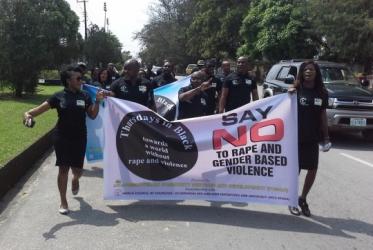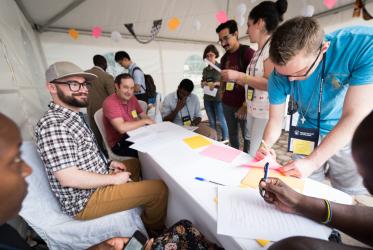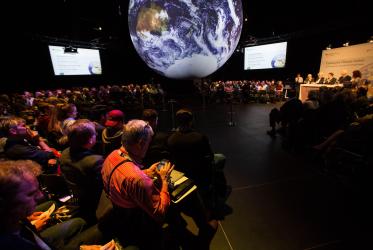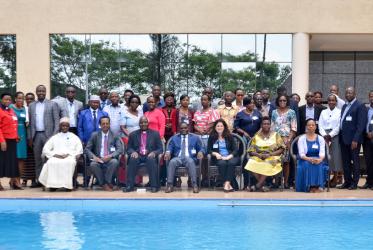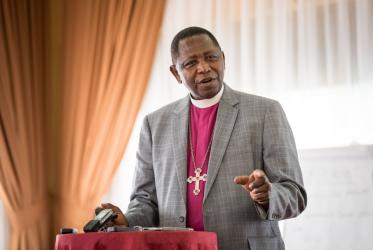Displaying 161 - 180 of 318
24 April 2018
In Nigeria, Thursdays in Black is flourishing
26 March 2018
WCC-EHAIA pioneer receives honorary doctorate
21 March 2018
‘Sokoni’ transforms marketplace into mission
13 March 2018
GETI students plant trees, in service for greener future
07 March 2018
Conversation on HIV “must continue,” Faith Networking Zone shows
07 December 2017
“God has brought ways of defeating HIV”
31 October 2017
Ugandan Mothers’ Union leader helps overcome HIV
31 October 2017
“Good healthcare a right, not a privilege,” says WCC-EAA
11 October 2017
In Zambia, foreign investors complicate “economy of life”
06 September 2017
“Facing the storm of HIV, we can move together, be agents of change”
06 September 2017
GEM School: integrating theology and economics
05 September 2017
New study lifts up voices of small farmers in Mozambique
24 August 2017

